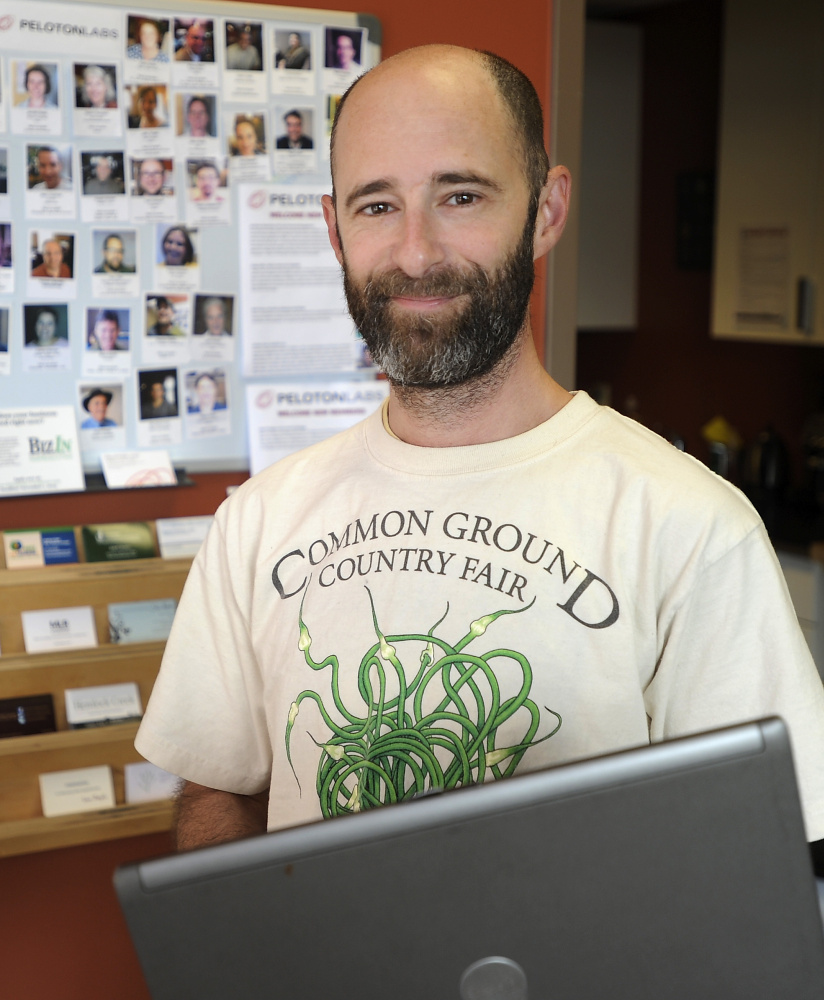Jeremy Bloom is an Internet farmer. Presumably you don’t know what that means. We didn’t either, so we called him up to ask. It turns out he’s a very diversified “farmer,” with his finger in many pies, including software development, urban agriculture, teaching fermentation classes and marketing restaurants.
WHAT’S IN A NAME? What’s the origin story behind Internet Farmer? “It’s the fourth in a line of names I have called my business in an effort to brand myself over the years.” The others included Techvertising, MyVirtualWebStaff and the more prosaic “consultant Jeremy Bloom.” This one is definitely the catchiest. When the recession hit, Bloom’s business building websites took a dive. He decided it was time to change his life. “I ended up farming for a couple of years because I just didn’t know what to do with myself. My friend needed help with his farm and I have always loved getting outside. The Internet Farmer kind of got born from there.”
GAME CHANGER: He spent two summers at Wealden Farm in Freeport. It’s an organic diversified farm on five acres, with some livestock and a farmstand. Working there exposed him to “the reality of the food system from start to finish,” he said. “It pretty much changed my world.” While the farm was fallow in the winter, he started working on his website and rebranded himself as the Internet Farmer.
DUAL MEANING: So he had software expertise and a fascination with food and farming. And then the twain met. “I spent so much time in the food world that I came across people in the food world that needed help, so I help them.” For starters, seven years ago when he moved to Portland he started looking for a food co-op. There wasn’t one. But he did find 15 people who were running a buying club. They made bulk purchases, like 50-pound sacks of flour, and divided them up once they were delivered. This made placing online orders as an individual impossible. “My e-commerce brain started trying to figure it out.” Once the buying club grew to 25, working with a partner, “we decided we would start writing software on the premise that other buying clubs in the world operate the same way,” he said. “We could make this a business product we could sell to other people.”
Membership in the Portland Food Co-op soon doubled, then quadrupled and last year, the co-op opened in its Congress Street site; it long ago outgrew the need for his software. But Bloom still works with other buying clubs, like one on Vinalhaven.
MEN WHO STARE AT GOATS: Bloom got involved with the Mayor’s Initiative for a Healthy and Sustainable Food System and is co-chairman of the urban agriculture subcommittee. His work on that committee led to the first community garden on the Eastern Promenade, built with permaculture methods.
The subcommittee also has looked into using goats for “mowing.” “The mayor never let that go,” Bloom said. “I am continually being asked to find goats.” He’s been working on it, and while he won’t talk about the details, he says “I do think we are going to see our first goats in town soon.”
CLIENT BASE: Don’t forget the Internet part of Internet Farmer. Bloom is still designing websites, like the one for the new Maine Farm & Sea Cooperative, the group vying for the food system contract that would serve all of the University of Maine campuses except for Orono. He’s also the new marketing director for Vinland, Portland’s all Maine-sourced restaurant. That came about after he spent the summer experimenting as a line cook at the restaurant. “I’m too old for 12 hours a day,” he said. (He turns 45 next week.) “That is too hard.” But he loved the place. So instead, he’s going to use social media and other venues to tell stories about Vinland.
FERMENTING IDEAS: Bloom is also exploring a relatively new passion: fermenting. He got started while trying to wean himself from a very bad Pepsi habit. “Not only was I a consumer, I always had plenty around to serve guests in my home.” But once he got into the food world, he understood it was a foul habit. “I learned to make kombucha so that I would stop drinking soda,” he said. He succeeded. “I feel so much better.” That passion had led to tons of experimentation, from salsa (yes, that can be a fermented dish) to fermenting tomatoes instead of canning them and even fermenting cabbage halves for use as a bread replacement in sandwiches. Stay tuned for details on his next venture, teaching fermenting classes at 409 Cumberland, Portland’s new affordable housing with a rooftop garden.
Send questions/comments to the editors.



